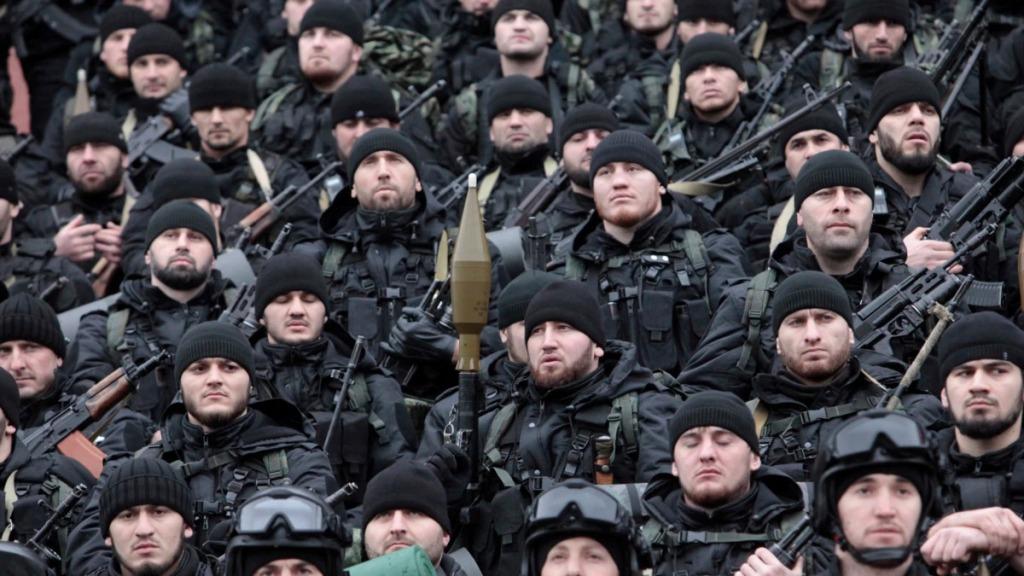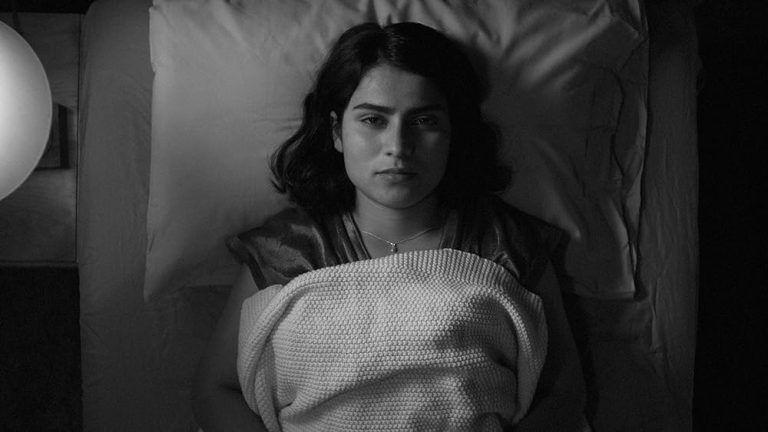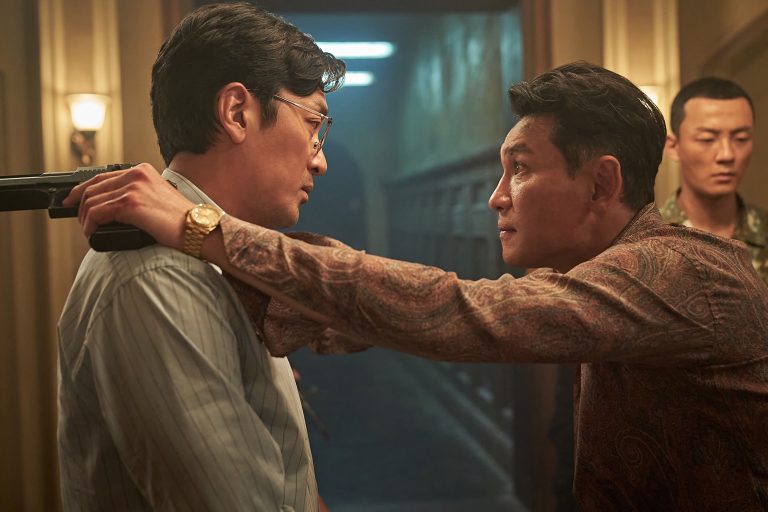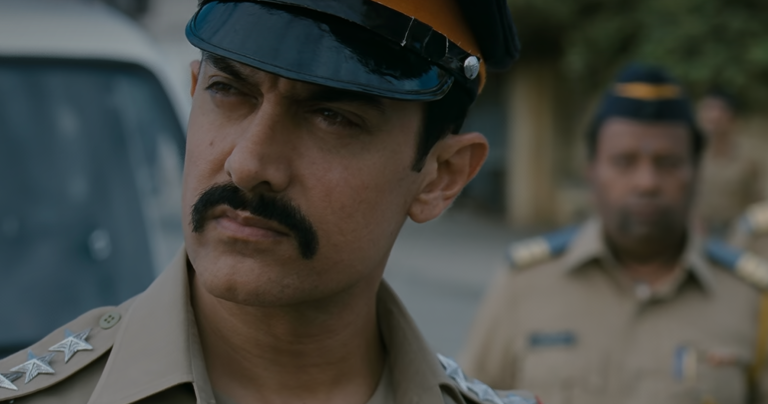Marc de la Villardiere & Igor Sahiri’s Emperor Putin (2022) is a TV documentary that runs just under an hour. It chronicles the Russian ‘Strongman’ Vladimir Putin’s boundless greed crown himself as the new Tsar of the Russian empire. Such a fantastical quest – the reconstruction of Greater Russia – of course, reduces people into small points in the board game of war strategy. It’s what Vladimir Putin has been practicing from the Second Chechen War (1999-2000) to the ongoing Russian invasion of Ukraine. If you have only surface-level knowledge of modern Russian politics, Emperor Putin offers a consolidating account of the threat Putin’s emperor dreams pose to the whole world.
However, for those who keenly follow the Russian authoritarian’s dangerous yet silly geopolitical games, Villardiere & Sahiri’s documentary offers nothing new. The documentary opens with Russia’s Victory Day parade on Moscow’s Red Square on May 9, 2021. The day commemorates the Russian victory over the Nazis in WWII. Vladimir Putin uses the annual event to display his military toys and the strength of his soldiers. Besides, like every authoritarian, he speaks of autocratic forces from a different time, which were ousted from Soviet soil, thanks to the sacrifices of millions of ordinary Russian people.
In 2021, Putin’s Victory Day speech was an attempt to set a narrative for his upcoming plans to invade Ukraine. Dictators love harnessing a tragic history and cunningly link it to a present political conflict. No matter how idiotic that narrative building seems, the establishment’s multi-headed propaganda wing make sure such false narrative justify their ugly deeds. Subsequently, after invading Ukraine on February 24, 2022, Putin said he “seeks to demilitarize and denazify Ukraine.”
Putin has had full control over the country’s affairs for more than two decades. And in all these times, the man has always shown a penchant for projecting himself as the macho leader or lord-protector. But perhaps since that portrayal doesn’t work on most of us, he only comes across as a man-child. Emperor Putin shows that this obsession with cultivating the ‘protector’ image led him to destroy Chechnya’s Capital city Grozny in 1999, killing tens of thousands of civilians. The bloody siege was Putin’s response to the series of bombings in Moscow by the militants of the Chechen Muslim fundamentalist group. Later, in 2007, Putin appointed Ramzan Kadyrov as Head of the Chechen Republic, a man who mimics Putin in many ways and gleefully commits Putin’s dirty work.
Emperor Putin points out how the loyal ally Kadyrov sent his troops – known as ‘Kadyrovites’ and trained in counter-insurgency operations at Chechnya – to the Ukrainian invasion. Skepticism was expressed over their effectiveness on the battlefield. But these intimidating and brutal foot soldiers were mostly sent out to gain an advantage over psychological warfare. Nevertheless, on a few occasions, these TikTok and Instagram warriors created operational security issues, giving an advantage to the Ukrainian forces.
The next section of Emperor Putin follows Vladimir Putin’s relentless efforts to suppress the voices of dissent. From former KGB agent Alexander Litvinenko, journalist Anna Politkovskaya to lawyer Sergei Magnitsky, and liberal politician Boris Nemtsov, many outspoken critics of Putin were killed or have died under mysterious circumstances. Some of these assassinations were committed on foreign soil. The failed assassination attempt on Alexei Navalny, a Russian opposition figure and vociferous Kremlin critic, was directly linked to FSB agents and Kremlin. Though Navalny survived the poisoning, he was later booked under cooked-up fraud charges and now enduring his long jail sentence.
The talking heads in Emperor Putin include Jean-Maurice Ripert, former ambassador of France to Russia, journalist Mikhail Zygar, and self-exiled author Boris Akunin. They speak of the stories that generate the cult of Putin’s personality. Though not as powerful or intelligent as the ruthless Soviet patriarch Josef Stalin, the higher echelons of the Kremlin similarly exist only to gratify their master. Mr. Ripert speaks of the changes in Putin from 2007 and how it forebodes Putin’s stance on geopolitical affairs till now. In this landmark speech at Munich Security Conference, Putin condemned the United States for creating a ‘Unipolar World.’ The fear (of course, some of it is justified) and paranoia of the Russian leader captured at that moment has only been replicated as Putin further isolated himself into a chamber.
The Arab Spring, Gaddafi’s brutal lynching, and the Maidan Revolution in Ukraine have consequently pushed Putin to tighten his hold over Russia and the ‘Near Abroad’ (the former ‘Satellite States’ of the Soviet Union). Aiding Syrian President Bashar al-Assad in his appalling war crimes and the annexation of the Ukrainian Peninsula of Crimea (in 2014) is only projected as the natural response to the Western world’s indirect attack against Putin and his allies. Moreover, Europe and America’s empty responses (in the form of economic sanctions) to Putin’s brazen declarations and deeds have only made the man embrace his own cult.
The final section of Emperor Putin showcases Kremlin’s growing influence on Africa. The Russia-Africa Summit, first held in October 2019 in Sochi, unveiled Putin’s new plans to serve his geopolitical agenda. Russian mercenaries, infamously addressed as ‘Wagner Company,’ are housed at the resource-rich Central African Republic. Their aim is to totally push France out of Central Africa and annihilate the rebels who destabilize the oppressive government. Putin uses his mercenaries to do what America and Europe did in the previous decades or centuries: monopolizing the wealth by providing militia service. The Russian propaganda wing is working in full swing in Central Africa as lessons about the strength of the so-called Russian ally pervade everywhere, from kindergarten to commercial blockbusters.
Overall, Emperor Putin (59 minutes) offers an easily accessible portrait of an authoritarian who consolidates his control over the largest country in the world through terror, war, and propaganda.
Also, Read: Aswang (2019) Review – A Disturbing Account of Oppression and Dehumanization
Emperor Putin (2022) can be watched at iwonder
Interested viewers can avail 50% percent discount on iwonder subscription:







![Baseball Girl [2020]: ‘NYAFF’ Review – A moving central performance elevates sports drama](https://79468c92.delivery.rocketcdn.me/wp-content/uploads/2020/09/Baseball-Girl-Movie-Review-highonfilms-1-768x322.jpeg)
